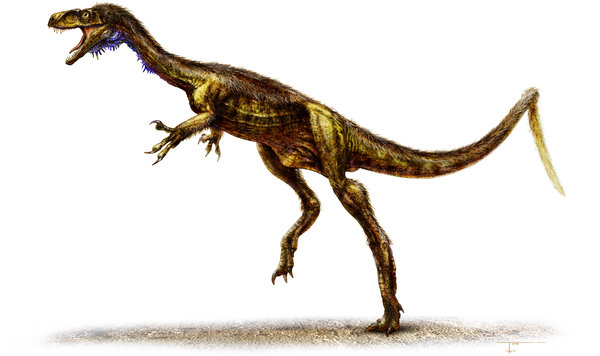Science News
Dinos, Penguins and Haiti

Dinos, Penguins and Haiti: this week’s not-to-be-missed science news!
Thanks to Ryan Wyatt for reporting from the American Astronomical Society meeting this week—such exciting news from the conference. If you missed any of his tweets or posts, take a look back by scrolling through the timeline on the top right of this screen.
The big news breaking today is Eodromaeus murphi, a small pet- or pint-sized dinosaur that lived about 230 million years ago. Though it weighed only 10-15 pounds, this predator was fast and ferocious and possibly an early ancestor of Tyrannosaurus rex. Science Friday has a great video on the discovery and reconstruction of the tiny beast.
In addition to global warming, some penguins faced more bad news this week. French scientists reporting in Nature found that banding king penguins can actually harm the birds. In the 10-year study, the authors found that wing bands slow the penguins down, causing the penguins to arrive later to breeding grounds, because it takes them longer to forage for food. From Ed Yong in Discover:
As a result, the banded latecomers were less likely to breed successfully, or even to try to mate at all. Slowed by their bands, would-be parents had to make longer foraging trips to find enough food for their chicks. Overall, they reared 39% fewer young than the unhindered birds.
But all penguins and bands are not created equal, according to one of the world's leading penguin experts, Dee Boersma, of the University of Washington. She told both Yong and NPR that while the study may be true of those bands and those penguins, it is not universal. The Academy’s own penguin expert, Pam Schaller, agrees. She told us via email that
Banding studies have shown that that flipper banding appears to affect some species of penguins and not other species. The results of the king penguin study cannot be directly applied to the African penguin (the species of penguins we care for).
Based on a 2009 study published regarding “The Effect of Flipper banding on the breeding success of African penguins Spheniscus demersus at Boulders Beach, South Africa” in the publication Ostrich, “There were no significant differences in breeding success between…banded and unbanded (African) penguins.”
Banding birds allows researchers to study trends in penguin populations, evaluate rehabilitation success, breeding success, growth rates and sexual maturity. These statistics are vital to understand and protect penguins.
Finally, there were many reports this week on the one-year anniversary of the massive earthquake in Haiti. Among the bad news were stories of lack of engineers (NPR) and health services (Scientific American) and the fact that in places like Haiti, “Corruption Kills”—a comment in Nature about the fact that “83% of all deaths from building collapse in earthquakes over the past 30 years occurred in countries that are anomalously corrupt.”
But, there was also good news—new technologies that emerged from the disaster as well as six frogs, previously thought to be extinct.
What bad and good science news did you uncover this week? Share with us!
Image by Todd Marshall